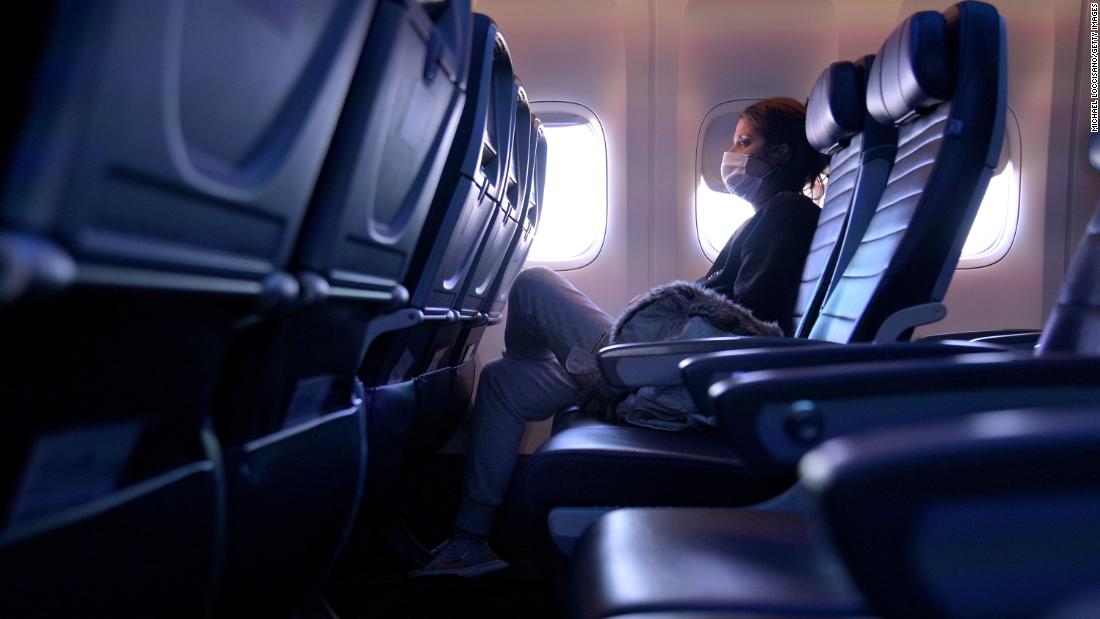
The risk of being exposed to the virus can be reduced by 23% to 57% on one- and two-aisle planes when middle seats are empty compared to a full-occupancy flight, according to the study published Wednesday by the U.S. Centers for Disease Control and Prevention.
Researchers at the CDC and Kansas State University have used laboratory models to simulate how much exposure to virus particles can be reduced if middle seats are left empty in an airplane cabin.
The models were based on the spread of bacteriophage aerosols used as a surrogate to estimate the airborne spread of the coronavirus. Bacteriophages are viruses that can infect bacteria. The analysis did not measure the impact of wearing masks, which is currently required on flights, but the researchers noted that a virus aerosol could still be emitted from an infectious masked passenger and that distancing could still be beneficial.
The models suggested that, with the middle seats empty, the risk reduction ranged from 23%, which was observed for a single passenger seated in the same row but two seats away from an infectious passenger, to 57%, observed when center seats were free at the other side. a three-row section containing a mix of people with Covid-19 and other passengers.
“When the infectious and other passengers who would have had the middle seats were removed, leaving six infectious passengers out of the total of 12 passengers behind the window and aisle, a 57% reduction in exposure was observed,” the researchers wrote in their report. research.
Overall, “it is important to recognize that the current study is concerned with exposure only and not transmission,” the researchers wrote. More research is needed to determine the risk that the virus may be transmitted and cause illness.
Recent update of tour guidance
The agency said that as long as coronavirus precautions are taken, including wearing a mask, fully vaccinated people can travel within the United States without first being tested for Covid-19 or quarantined afterward.
For international travel, fully vaccinated people do not require a Covid-19 test prior to travel – unless required by the destination – and do not need to be quarantined after returning to the United States. They should still have a negative Covid-19 test before boarding a flight to the US, and a follow-up test three to five days after their return, the CDC noted.
The CDC considers someone fully vaccinated two weeks after receiving the last required dose of the Covid-19 vaccine. The updated guidelines do not apply to unvaccinated people. The CDC advises anyone who is not fully vaccinated to continue to avoid travel.
All Americans, regardless of vaccination status, should wear a mask and apply public health measures such as physical distance and regular hand washing, the CDC says.